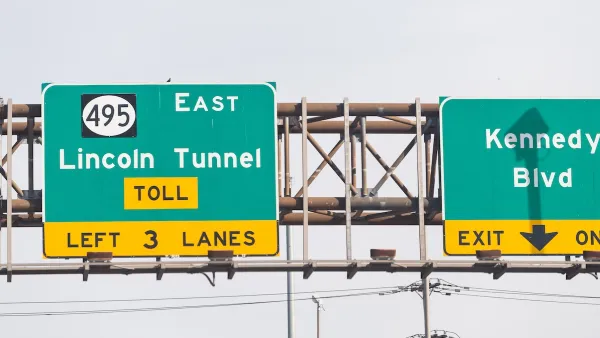Congestion pricing is an economic tool for a difficult, complicated problem, and must be calculated carefully to avoid unintended consequences.

Adam Milsap shares news of a new paper by Jeffrey Brinkman that serves as a reminder of the world's complications, especially with regard to congestion and agglomeration economies.
For those unfamiliar with the latter term, Milsap defines agglomeration economies as "the benefits that occur when firms and workers are in proximity to one another." Importantly, agglomeration economies are a behavior commonly found in firm clusters and cities.
While taxing activities that generate negative externalities and subsidizing activities that generate positive externalities is economically sound, calculating the appropriate tax or subsidy is often difficult in practice. The key problem, according to Milsap: "Since congestion is a result of the high population density that is also associated with agglomeration economies, there is tradeoff between the two."
So Jeffrey Brinkman's paper, published in the Journal of Urban Economics, argues:
…if city officials ignore the positive effect of agglomeration economies on productivity when calculating their congestion taxes they may set the tax too high. Overall welfare may improve even if the tax is too high (it depends on the size of the DWL when no tax is implemented) but society will not be as well off as it would be if the positive agglomeration effects were taken into account.
FULL STORY: Congestion taxes can make society worse off

Analysis: Cybertruck Fatality Rate Far Exceeds That of Ford Pinto
The Tesla Cybertruck was recalled seven times last year.

National Parks Layoffs Will Cause Communities to Lose Billions
Thousands of essential park workers were laid off this week, just before the busy spring break season.

Retro-silient?: America’s First “Eco-burb,” The Woodlands Turns 50
A master-planned community north of Houston offers lessons on green infrastructure and resilient design, but falls short of its founder’s lofty affordability and walkability goals.

Test News Post 1
This is a summary

Analysis: Cybertruck Fatality Rate Far Exceeds That of Ford Pinto
The Tesla Cybertruck was recalled seven times last year.

Test News Headline 46
Test for the image on the front page.
Urban Design for Planners 1: Software Tools
This six-course series explores essential urban design concepts using open source software and equips planners with the tools they need to participate fully in the urban design process.
Planning for Universal Design
Learn the tools for implementing Universal Design in planning regulations.
EMC Planning Group, Inc.
Planetizen
Planetizen
Mpact (formerly Rail~Volution)
Great Falls Development Authority, Inc.
HUDs Office of Policy Development and Research
NYU Wagner Graduate School of Public Service




























